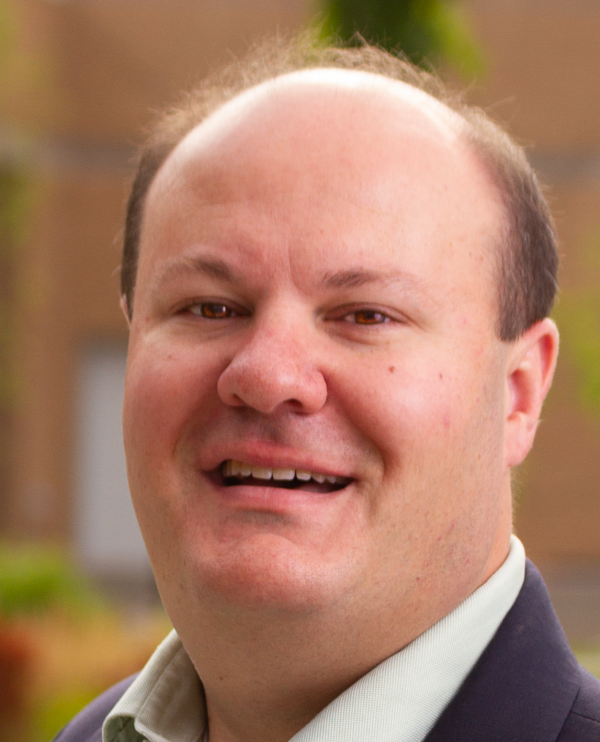Study finds HIE event notification promising tool to solve major healthcare challenge
A new study from U.S. Department of Veterans Affairs, Regenstrief Institute, IUPUI and Icahn School of Medicine at Mount Sinai researchers reports that primary care physicians recognize the need for better coordination and welcome health information exchange (HIE) event notifications as a means of improving the flow of information to enable provision of better patient care.
Individuals often receive medical care from more than one healthcare system. Care coordination among providers, for example after discharge from an emergency department or hospital in one system, with the patient’s primary care physician in another, is challenging and frequently doesn’t occur. This siloed approach to medical care with incomplete sharing of clinical information, may adversely affect health outcomes.
“While our study focused on patients whose primary care was provided in the VA system, this is an issue faced by patients and their providers in many, if not most, healthcare systems in the United States,” said study senior author Brian Dixon, PhD, MPA, the Regenstrief and Indiana University Richard M. Fairbanks School of Public Health at IUPUI director of public health informatics.
Dr. Dixon and colleagues reported that primary care doctors in the VA system typically are not notified when their patients were seen at a non-VA emergency department or hospitalized at a non-VA facility, so physicians are unaware of the need for follow up and often have to wait months before learning of the event from a patient themselves – months during which the patient was not receiving care from the doctor responsible for overseeing their overall health.
“The majority of Americans rely on their primary care physician to coordinate care of medical specialists and hospitalizations. They expect their doctor to know about their care, but most of the time that’s not happening,” said Dr. Dixon. ”Our study is unique because we investigated primary care teams’ perspectives on utilization of an electronic foundation — health information exchange — to enable automatic notifications — for example, a primary care physician’s patient has been hospitalized for a heart attack — to remediate this problem and found positive reception.”
Primary care team members interviewed by the study authors viewed electronic alerts (for example, notification that a patient was seen in the ED for chest pains and sent home when it was determined not to be a cardiac event) as both necessary and effective in supporting timely follow-up care, especially for older adults at higher risk of such medical events.
The study, “Perceptions of event notification following discharge to improve geriatric care: qualitative interviews of care team members from a 2-site cluster randomized trial” appears online ahead of print in Journal of the American Medical Informatics Association (JAMIA).
Authors, in addition to Dr. Dixon, are Emily Franzosa, Morgan Traylor, Kimberly Judon, Vivian Guerrero Aquino, Ashley L. Schwartzkopf and Kenneth S. Boockvar, all of the VA.
Now that this qualitative study has demonstrated the perceived benefits and acceptability of electronic event notification by primary care physicians and their teams, Dr. Dixon and colleagues are working on a quantitative analysis, measuring the actual impact of these notifications on follow-up care as well as preventing repeat emergency department visits and rehospitalizations.
This work was supported by U.S. Department of Veterans Affairs Health Services Research and Development Service (grants IIR-10- 146 and I01 HX001563).
About Richard L. Roudebush Veterans Affairs (VA) Medical Center
Established in 1932, the Richard L. Roudebush VA Medical Center serves Veterans from across Indiana and western Illinois. The Roudebush VAMC is one of the largest and most complex medical centers in the Department of Veterans Affairs, and provides acute inpatient medical, surgical, psychiatric, rehabilitation, and neurological care to more than 60,000 Veterans annually. Some of the many services available to Veterans include emergency medicine, primary care, cardiac care, radiation oncology, audiology, community-based extended care and community VA clinics.
About Regenstrief Institute
Founded in 1969 in Indianapolis, the Regenstrief Institute is a local, national and global leader dedicated to a world where better information empowers people to end disease and realize true health. A key research partner to Indiana University, Regenstrief and its research scientists are responsible for a growing number of major healthcare innovations and studies. Examples range from the development of global health information technology standards that enable the use and interoperability of electronic health records to improving patient-physician communications, to creating models of care that inform practice and improve the lives of patients around the globe.
Sam Regenstrief, a nationally successful entrepreneur from Connersville, Indiana, founded the institute with the goal of making healthcare more efficient and accessible for everyone. His vision continues to guide the institute’s research mission.
About Brian E. Dixon, PhD, MPA
In addition to his role as Regenstrief Institute and Indiana University Richard M. Fairbanks School of Public Health at IUPUI director of public health informatics, Brian E. Dixon, MPA, PhD, is a research scientist at Regenstrief and an associate professor of epidemiology at the Fairbanks School of Public Health. He is also an affiliate scientist at the U.S. Department of Veterans Affairs Health Services Research and Development Center for Health Information and Communication, Richard L. Roudebush VA Medical Center.










